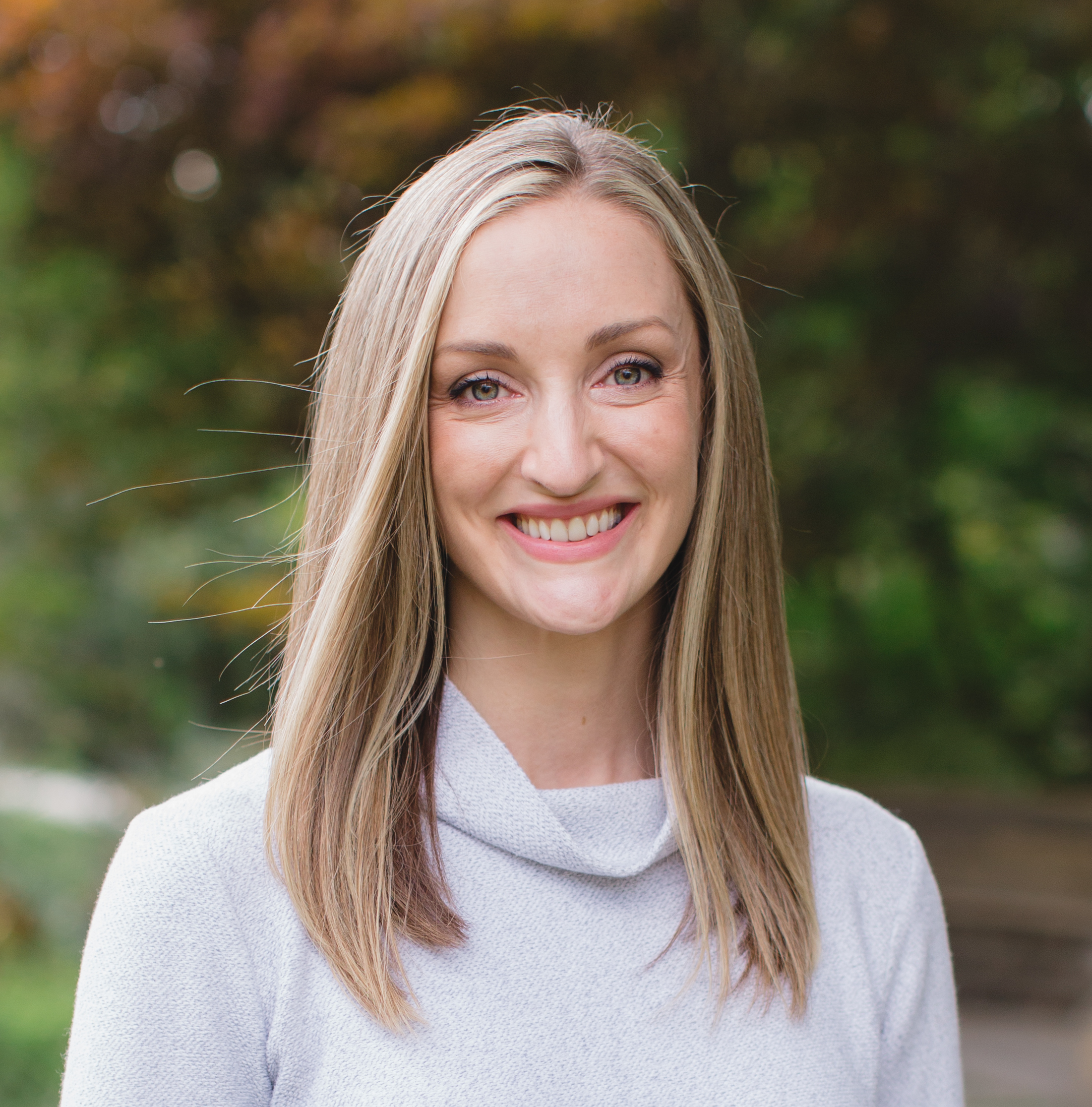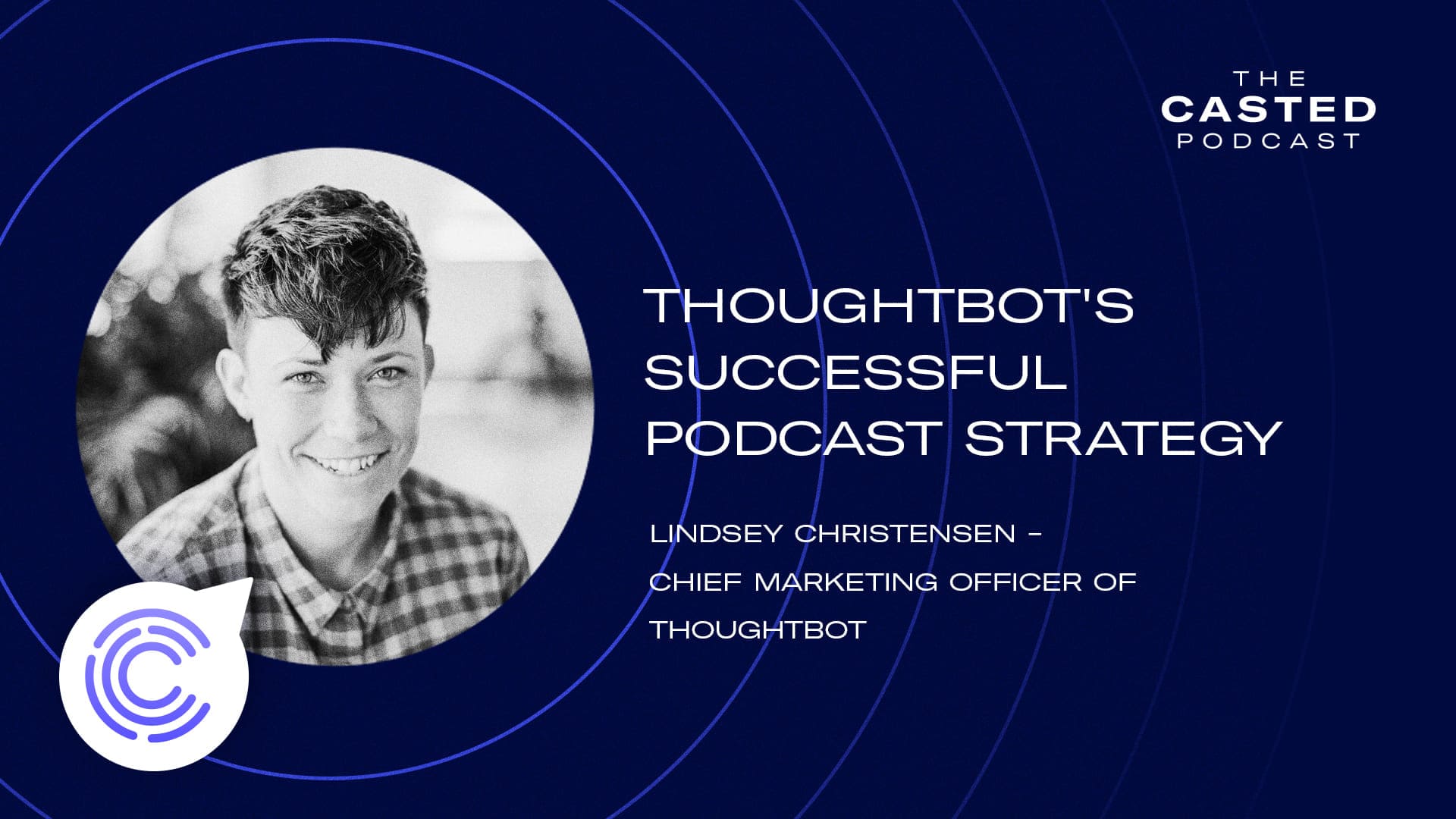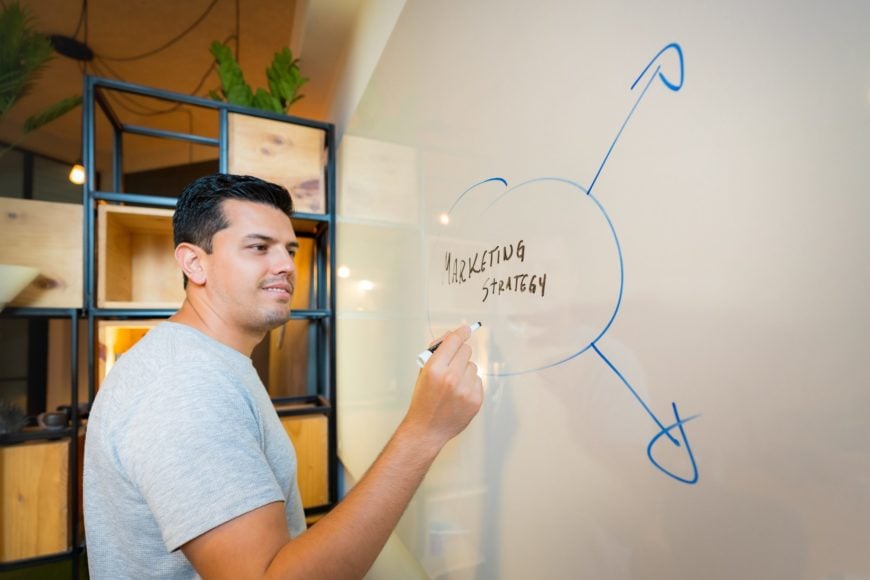Podcasts are usually thought of as tools for marketers; once your audio content is recorded, it’s used to increase brand awareness and engagement, and so on and so forth. That’s great and all...but your podcast can be so much more. What if you were able to provide incredible value to the listener as well? So much so that the broadcast could be used to drive revenue and be used as part of the sales process. All of this sounds great, but it can be much more challenging than it sounds. At the heart of every great sales/marketing podcast is a strong idea and engaging discussion.
In this episode of The Casted Podcast, we chat with Jeremy Donovan, SVP of Sales Strategy and Sales Operations at SalesLoft and host of the Hey Salespeople podcast, about how to effectively create a podcast and use it to leverage both the sales and marketing facets of your brand!
Digging into Key Takeaways
In each episode, we like to highlight the key takeaways from each show. Think of it as a podcast outline or live show notes. Here are just a few of the takeaways that really stood out to us in Jeremy's episode.
Make Something That YOU Would Want to Listen To
It’s key to remember how the ultimate goal for your podcast is to get people to WANT to listen to your show. The easiest way to do that? Give them want they want. Frame your show before you record and lead your interviewee with questions where the answers would be valuable to your audience. With these considerations in mind, your listeners will increasingly find your broadcast to be one they can’t live without.
Fire the More Strategic Question
Don’t be afraid to ask the deep question. It makes for a more insightful interview and your listeners will enjoy getting these "beneath the surface" questions. After all, isn't that why we all love podcasts?
Selfish and Selfless↔️
Podcasts can help everyone involved! It not only gives your brand exposure and press, but it also provides a lot of value - depending on what your podcast is about - to the listener.
Advice for Getting Started
Don’t overthink it, just do it. Stick to the process: plan our your topic, find a host, and schedule guests and content. More importantly, when you’re interviewing those guests, keep it conversational and interactive - don’t be scared to tell stories. Like always...you want your content to be engaging and fun for your audience!
Interested in More from Jeremy Donovan?
Check out Jeremy Donovan’s podcast Hey Salespeople to learn more about how his show works on providing value to both marketing and sales.
Interested in skimming through the entire episode? Access the full transcript below.
LINDSAY TJEPKEMA: Hey salespeople. Yeah, I'm talking to you. I know, I know. Usually I mostly speak to marketers on this show, but today there's a little something extra just for you. Have you ever found yourself wishing and hoping that marketing would create something you could really use? Not just the typical content they produce that positions the brand for success, but something that you personally could really use in the sales process? Yeah. Sounds pretty good, huh? Well, you're not alone and newsflash, that's what marketing wants to create too. Here at Casted, we talk a lot about how conversations like those captured in a podcast are the unifier, the common denominator that marketing needs to be able to appeal to the masses and sales needs to engage the individual. But how do you, yes you, whether you're in sales, marketing, or otherwise make that happen? I am Lindsay Tjepkema, CEO and co- founder of Casted, the first and only B2B podcasting platform, and this is our podcast. Today's episode is all about podcasting and sales, specifically how sales can contribute to a really effective show and how sales and marketing can work together to use it to drive both brand awareness and revenue. And to guide today's conversation is Jeremey Donovan, host of the Hey Salespeople podcast. See what I did there at the beginning of the intro? He's also a senior vice president of strategy at SalesLoft. Listen in on this unlikely road to podcast hosting and Jeremey's advice for how to make a truly effective show.
JEREMEY DONOVAN: I am Jeremey Donovan. I am the senior vice president of sales strategy at SalesLoft and I tell our guests not to do any commercials, so I won't give you a commercial either.
LINDSAY TJEPKEMA: But you're also the host of Hey Salespeople.
JEREMEY DONOVAN: Yeah. Actually, our producer kicked me in the butt because she says like," Jeremy, you always forget to mention that you're the host of the Hey Salespeople podcast. So there I did it. And Laura can be happy.
LINDSAY TJEPKEMA: Even on the podcast about your podcast.
JEREMEY DONOVAN: I know. Yeah. It's because it's sort of one of the lessons I suppose, or things I follow, which is a zero self promotion of myself and the guests. Right? Just talk about stuff that is of value to people. And then there you go. So yeah, I think that's part of my DNA to avoid all forms of self promotion.
LINDSAY TJEPKEMA: I get it. I totally got it. And that's what makes you a great host. Which is what I want to talk with you about today, which is how did you become one?
JEREMEY DONOVAN: Yeah, I would say that I feel like I'm a very unlikely podcaster. So we knew we wanted to sort of increase our giving back to salespeople and obviously brand building, there's always a dual purpose of selfless and selfish purpose. And we wanted our CEO, Kyle Porter, to be the voice of the SalesLoft podcast. One, is because he's this incredibly charismatic personality, interviews people extremely effectively with kind of deep cutting questions and deep insights and so on. So he is absolutely the perfect podcast host. Or alternatively, our CMO, Sydney Sloan, who I would characterize in all of the same ways that I just described Kyle. And the deal though was that they were incredibly busy people and I kept pushing," We need a podcast, we need a podcast. When is Kyle or Sydney going to do this?" And then they finally, I think, got fed up and they're like," Okay, squeaky wheel, you do the podcast." So that is how it got started is literally being a squeaky wheel and just saying," Hey, podcasting is... I think it goes up and down in popularity. Every night my wife stretches and she stretches while listening to a different podcast. I'm like," Okay." Like when that happens, this is a thing, this is a big deal. So that's a bit of it.
LINDSAY TJEPKEMA: Okay. Got it. So you saw a need, you got elected, and then you started to see the relevancy and the adoption rate in your own life of podcasts. How did you feel about it? I mean, I'm sure, okay, those people are busy, but I'm sure we just heard your title and your role. Sure you're pretty busy. When this ended up falling into your lap, you're like," Okay, finally, we're going to get this thing done." Or were you like," Okay, how are we going to do this?"
JEREMEY DONOVAN: Yeah, I think there was both. I mean, for starters, and I don't know how many of your guests say this, but I'm a super duper introvert. I like to sit at my desk with my headset on not talking to people. I would go out for drinks and that's when I come alive, I guess. But otherwise I'm super introverted, so I truly didn't know how it would go. I did not know anything about podcasting. I know there are podcasts on podcasting, like this one, I had never listened to anything like that. I didn't know, yeah, that really the first thing and even worse, I'm a huge reader, I read at least a book, if not more, a week. And by the way, I think that's one of the other sort of secret weapons, I guess I have in podcasting is that I'm able to reference so much source material with attribution because of that reading. But yeah. I mean, I was super apprehensive and sort of inexperienced. I just really asked myself," What is it that I would want to listen to?"
LINDSAY TJEPKEMA: Yeah. Well, yeah. I guess let's talk about how the show came together and what is it, why is it, what is it about, and how did that come to be?
JEREMEY DONOVAN: Yeah, I mean, as introverted as I am, I guess there are a couple of things. I'm a learning personality, not just the books I suppose, but I was already having lunch kind of every day with a different person. I try to never eat lunch alone. And then I was also just having routine conversations with people that I would find who are out there who had solved problems that I was working through. Like if I was working through any aspects of sales strategy, I would find those experts and talk to them. So a bit of it was just taking sort of those people that I was already talking to and asking them if they wanted to be on the show. And then for me, the getting back to this point about, I want to do something of what I would want to listen to is I align on topic in the first five to 10 minutes before we start recording. So I don't put any burden on the guests to sort of premeditate that. And part of my motivation there is when I'm invited to be a guest, I want to talk about what's top of mind for me right now. So if this were a sales podcast, I'd be talking about forecasting, which is very top of mind right now for me and put other things out of my mind to focus on that. So one is that alignment on topic at the very beginning. Two is, since I'm a reading nut, I always ask people at the beginning rather than at the end, because I know a lot of podcasters will ask at the end," What's your favorite book?" I ask that at the beginning, and then we geek out on books for a little while. And then we just go into the topic and I have no structured questions, I'm just trying to actively listen, probe, and keep the threads going. Like if someone hasn't completed something, I just think as a listener, that thread needs to get completed. So I just put myself a little note that I asked a question that maybe didn't get answered fully, or if I were a listener, tell me more. Don't just tell me what, tell me how, because I really want people to walk away from the podcast with actionable insight.
LINDSAY TJEPKEMA: Yeah, definitely. And how has being the host of this podcast impacted your day job, so to speak?
JEREMEY DONOVAN: It definitely increased the number of working hours I had. I do the podcast recordings mostly during the day. And we were at a pretty frantic pace at the beginning because we wanted to build inventory so that we could release, we're releasing two a week right now. So we needed a pretty healthy inventory. So in order to do that, we recorded, I don't know, 60 episodes inside of two or three months. My colleagues in the office sort of laughing at me that I was living in our it's our Zoom room, basically with a microphone. I was using my headset for a while and then finally switched over to the mildly better setup. But they sort of laugh at me that I was spending all my days podcasting.
LINDSAY TJEPKEMA: How has that changed you? I mean, you say you're very introverted. Has it changed that at all? Has it given you an outlet? Has it stretched you? Have you learned things about yourself? What has it done for you personally?
JEREMEY DONOVAN: I mean, I really do learn every time and I learned in two dimensions or three, I guess. But I mean, one is obviously I'm learning the subject matter from these experts that I'm speaking with, that's one dimension I learned on. And then the other dimension is, yeah, how to be a better speaker and host, how to ask questions more effectively? It's funny, I'm talking so much now, it's weird to be on the other side. I'm very self conscious about that, but I'm constantly thinking about that. How do I ask a better question?
LINDSAY TJEPKEMA: Yeah. Do you find yourself doing that outside of the podcast now? Like in other conversations?
JEREMEY DONOVAN: I think people would characterize me as a deep listener. That I will sit back and then I'll sort of strike strategically with a deeper question, that's kind of my M. O. I think that probably makes you look smart. It doesn't actually require any extra intelligence, it just requires the patience, I guess, to listen and learn and then fire the more strategic question at people. But yeah, I think it is helping me with listening and thoughtful questions.
LINDSAY TJEPKEMA: Well, let's rewind a little bit and talk about, go back to how the show came to be. How did that actually happen? You said," Hey, we need a podcast." They said," Hey, why don't you do it?" Were you involved in the show concepting or structure strategizing? What was that like in the months and weeks leading up to it?
JEREMEY DONOVAN: Yeah. Well, it was all very rapid. So yeah, getting really into the nitty gritty of it, we spent some time defining what the kind of is. And we defined, who are we trying to target? Why are we targeting those people? And what do we want them to learn? So that was a big definition. And we also had guiding principles of things that we wanted to do and would not do. So, like one of our guiding principles is that we try to avoid consultants and sort of pundents and authors, with a few notable exceptions. We really wanted to interview practitioners. So it's by practitioners for practitioners. So I think that was one element of it. The next, yeah, was trying to try to pick the right podcast recording platform. So that took a little bit of time. And we landed on Zencastr because it does local recording. And we had our hiccups there, but it's turned out to be pretty great. Yeah, like the room set up and the audio took a few iterations. And then obviously the Laura, as a producer, went out and found an editor, sound editor, who's another kind of key partner to us, a guy named Peter LoPinto. And so, there's so many facets, I guess. And there's a lot that she does that I probably don't even realize. Like how does my podcast get from me sitting in front of a microphone to actually up on iTunes and Stitcher and whatever else? That's all magic to me, that I have absolutely no idea how any of that happens, that she's working magic on. I guess I'd also add marketing strategy. We're constantly sort of pushing each other there. We started at one a week, even though we had this massive inventory and I'm like," We're never going to get all these out there. Let's basically flood the market with this stuff." And she's like," No, no, no. We got to make sure that we gain traction, that it's quality that people are hungry for the next episode," And so on. So she's the conscience also on my shoulder of, go fast. And then I guess the only piece I didn't mention is the guests. Is we really, really concerted effort to figure out the very specific people we want to talk to, and then try to get them on the show. And it's like I work in the world of sales, getting people on as podcast guests, especially early on when you're first starting, they don't know who you are and they're busy people. They want to spend their time with people who already have a platform. So how do you get them willing to take the leap with you to be the early guests? That's not trivial.
LINDSAY TJEPKEMA: How do you, personally, and you, SalesLoft, use the podcast? Once the show is produced, what do you do with it? How do you leverage it?
JEREMEY DONOVAN: I mean, as I said, it's a selfish and selfless thing. The selfless part, obviously, is what the mission of the podcast is, which is to give salespeople and sales leaders actionable ideas that they can use independent of whether they are customers of ours or not. The selfish thing is to build brand for the company. Right? Although we're not self promotional and I have not heard the intro or the outro in awhile. And I recorded whatever it is, 60 to 70 of them, and have yet to listen to a single episode. I think I'm just terrified to hear my own voice. But, yeah, I mean, so on the kind of branding side, it gives us, I would presume, some degree of brand exposure and as a thought leader. Because we are like every company I think that exists out there, there's competition. And the products in any given category are similar enough that so much of the differentiation of why a customer buys one platform versus another platform, I think is the belief that the company is going to help you be successful beyond what they sell. Like, we sell a sales engagement platform. You can buy other sales, engagement platforms. The key is whether or not our implementation and our customer success people, our salespeople are going to come to you with those actionable tips that tell you how do you use it? Because you can use anything a lot of different ways.
LINDSAY TJEPKEMA: Before we let you go, what would you say to someone else who is about to get a podcast host added to their title? Or inspiration or words of caution.
JEREMEY DONOVAN: I throw caution to the wind, I guess. And my thing is, don't overthink it. Right? If I had maybe two piece of advice, the first I guess is the Nike expression, which is," Just do it. Go ask people to be on the podcast." People are going to say yes, and build momentum from there. And then I think the other piece is, we almost barely touched on it, but is this approach, which is truly have a conversation, and I mean, I hope I did it today, but try to tell stories and relive experiences and bring color to personalities and relationships and so on. I think that's the interesting side. What you should not do as a podcaster and what you should not accept as a podcaster is to overly prepare sets of questions. Because it becomes very jerky- jerky and unnatural, or to let your guests get away with just generalities that are not delivered in a sort of interesting package.
LINDSAY TJEPKEMA: That's it for today's show. Thank you so much to today's guest. And to learn more about them and see Casted in action with clips of today's show and related content visit casted. us. Thanks so much for listening.
About Season 1 of The Casted Podcast
Welcome to our first season of The Casted Podcast! This podcast is a podcast about podcasts. How meta, right? Each season we will focus on how podcasts can better your business, the place of podcasts in your marketing strategy, and advice from podcasters and marketers who are finding success with their own brand podcasts. In season one, we're talking with your favorite podcast hosts to get their perspective on why podcasting is such a crucial part of their own strategies.





